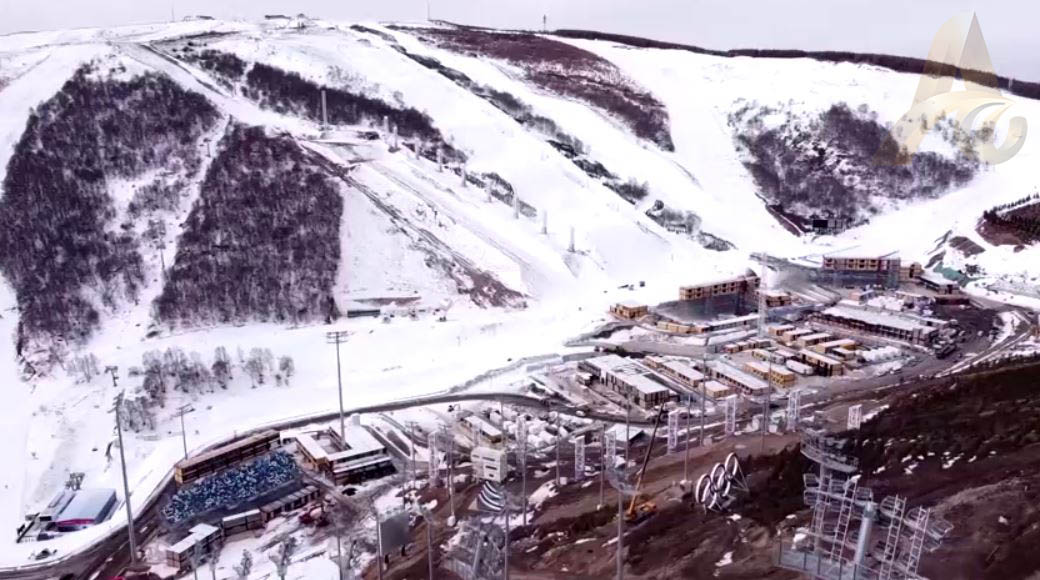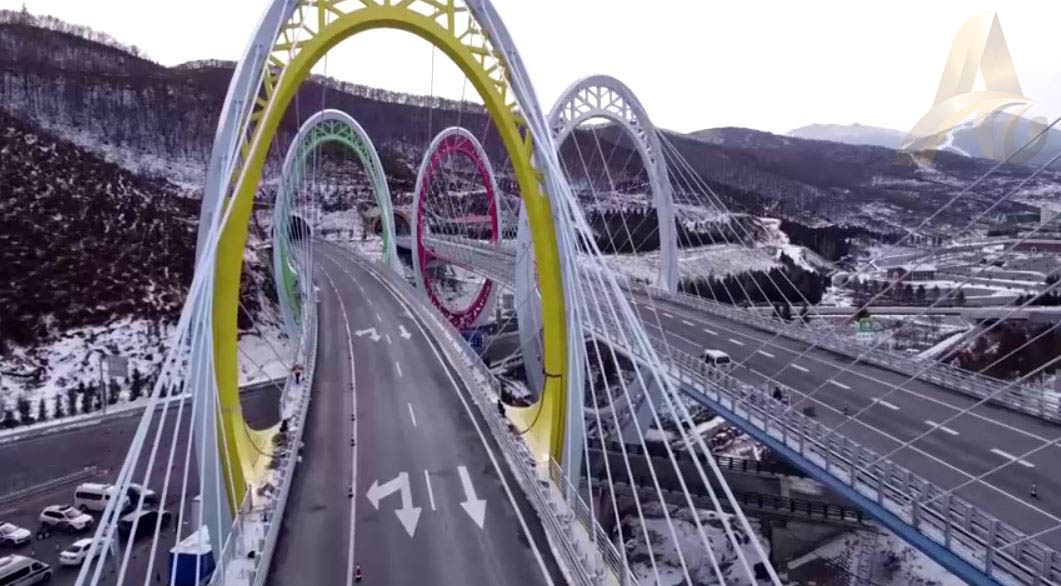INTERNATIONAL: With a month to go, the final preparations are underway for the Beijing 2022 Winter Olympics.
Despite concerns about the coronavirus pandemic and mounting international criticism of its human rights record, China has maintained that the world's biggest winter sports event will take place on schedule from February 4 to February 20. Beijing will also become the first city to host both the summer and winter games.
Set to start in one month, tickets for the Games will be sold to spectators from mainland China only, while unvaccinated athletes must spend 21 days in quarantine ahead of the Games, according to the International Olympic Committee announcement in September.
Amid criticisms, the United States was the first to announce a boycott on Beijing 2022 Winter Olympics, saying on December 6 its government officials would not attend because of China's human rights "atrocities" in the western region of Xinjiang.
Canada, Britain and Australia are among the other countries that followed after and announced a diplomatic boycott of the Winter Games, which China called "political posturing."
Regarding the Covid-19 pandemic, the International Olympic Committee has stated that all domestic and international participants as well as the workforce in the system will be tested daily.
The IOC also said among the Beijing safety principles were that all fully vaccinated participants would enter what it called a "closed-loop management system" immediately upon their arrival, within which they will move freely. This will cover all Games-related areas and stadiums as well as accommodation, catering and the opening and closing ceremonies, served by a dedicated transport system.
The first case of Omicron variant in mainland China was detected in the northern port city of Tianjin in a traveler who arrived in the city from overseas on Dec. 9, the state-run Tianjin Daily reported on December 13.
On December 22, National Hockey League Commissioner Gary Bettman said the National Hockey League (NHL) would not send its players to compete in the men's ice hockey tournament at due to COVID-19 concerns, as the league entered a pause following an outbreak of the Omicron variant. The decision by the North American league, which months ago had agreed to let the players go to Beijing, means the Games will not see some of the best-known athletes expected to compete in the Chinese capital.
The next day, the city of Xian, home to 13 million residents, went into lockdown on December 23 after rising COVID-19 infections were reported in the northwestern city. Authorities said 26 officials in the city would be held accountable and face punishments for "not doing a good job" in their COVID-19 prevention and control effort, leading to the outbreak.
Using the Winter Olympics to drive its efforts to improve the environment, Chinese President Xi Jinping vowed to run a "green" Games.
However, smog-prone capital Beijing is still preparing for the worst as the opening ceremony looms. Beijing has improved its air quality since China won its bid to host the Games, but the ministry of ecology and environment has said winter smog risks remained "severe" and contingency plans were in place.
Officials said that all 26 Olympic venues in Beijing and Hebei province would be 100% powered by renewable energy. More than 700 hydrogen-fuelled vehicles will also be deployed, despite the government falling short of a hydrogen production target.
Water scarcity is another concern, especially when it comes to creating artificial snow and ice. Organizers said the Games would not put additional pressure on local water supplies and rely instead on cisterns that collected mountain runoff and rainfall during the summer -- in line with China's wider efforts to create a "circular" economy in which resources are fully recycled.
PHOTO: FILE FOOTAGE OF IOC ANNOUNCEMENT OF BEIJING WINNING VOTE TO HOST 2022 WINTER OLYMPIC GAMES / FILE FOOTAGE OF BEIJING 2022 EMBLEMS AND MASCOTS BEING UNVEILED / FILE FOOTAGE OF BEIJING 2022 VENUES AND TEST EVENTS / FILE DRONE FOOTAGE OF OLYMPIC VENUES OF BIATHLON, CROSS COUNTRY, SKI JUMP, HALF PIPE, SLOPESTYLE, MOGULS, PARALLEL GIANT SLALOM, ZHANGJIAKOU OLYMPIC VILLAGE AND THAIWOO SKI RESORT / FILE FOOTAGE OF PERSON HOLDING WINTER OLYMPIC FLAME / FILE FOOTAGE OF BIG AIR SHOUGANG OLYMPICS VENUE / FILE FOOTAGE OF ALPINE SLOPE AND INDOOR LUGE TRACK AT YANQING OLYMPIC VILLAGE / HYDROGEN FUEL CELL ENGINE ON DISPLAY























